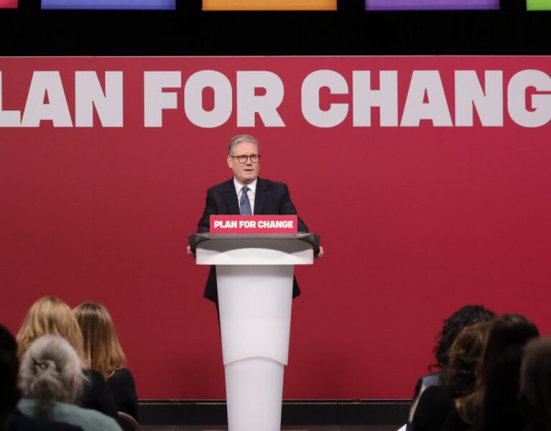When Rachel Reeves entered the Treasury, she promised two things: fiscal discipline and economic growth.
Now she faces her first big test of how to reconcile those goals with Labour’s climate promises. Reports that the chancellor is preparing to scrap the windfall tax on North Sea oil and gas a year earlier than planned expose the contradictions at the heart of Starmer’s government, and its pragmatism too.
The politics of pragmatism
Few policies carry as much political symbolism as the windfall tax. Introduced by the Conservatives in 2022, it was Labour who most fiercely demanded it, arguing that energy giants should pay their “fair share” after posting record profits following Russia’s invasion of Ukraine. For Reeves to now consider ending it early is a remarkable reversal.
Yet it’s also an admission of economic reality. Oil prices have halved since the levy was introduced, and investment in the North Sea has slowed to a trickle. Offshore Energies UK claims that 1,000 jobs are being lost every month under the current regime and that £40 billion of potential projects are on hold. Even if those numbers are inflated, the direction of travel is clear: the UK’s fiscal and industrial strategy has made its energy sector look uninvestable.
The Treasury is right to seek assurances from companies before changing course. But it’s also right to admit that the UK cannot will its way to energy security or net-zero credibility by taxing one of its key sectors into retreat. Reeves’ problem is not ideological inconsistency – it’s timing. She must fund a massive fiscal gap while avoiding the perception that Labour has abandoned its green credentials.

The reality of transition
Keir Starmer’s line that he wants to “double down” on North Sea extraction, while still banning new exploration licences, sums up Labour’s tightrope. It’s an appeal to both Aberdeen and Islington, the promise of stability without a U-turn, investment without abandonment of principle.
But Britain’s energy transition cannot be built on ambiguity. If the UK wants to keep the lights on, cut imports, and fund renewables, it must manage the decline of oil and gas, not hasten it. That means keeping companies investing in decommissioning, carbon capture, and hybrid production, all of which depend on confidence in the tax regime.
Political risk, economic sense
Reeves’ critics, including green campaigners and left-leaning MPs, will accuse her of betraying Labour’s climate agenda. But politics is about sequencing, not slogans. Scrapping the levy early could signal to investors that Britain’s energy policy is stable again, not hostage to populist gestures.
The chancellor’s challenge is to make that message credible: that Labour’s path to net zero runs through stability, not self-sabotage. Ending the windfall tax early would not be a betrayal of green ambition. Done right, it could be the foundation of an energy policy rooted in realism, and the first sign that this government finally understands that growth and transition must work together, or not at all.







